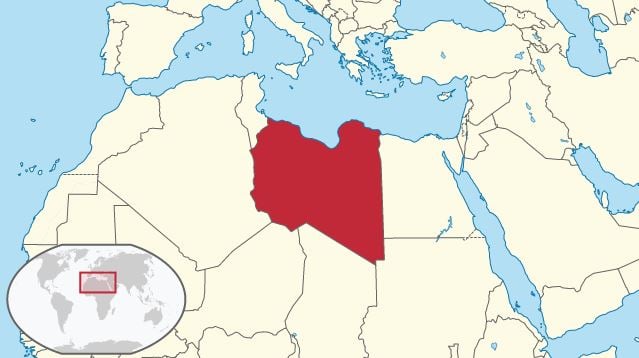
The North African state of Libya has experienced a tumultuous period of state collapse in the years since the fall of its erratic dictator Colonel Muammar Gaddafi. In 2011 Gaddafi was overthrown in a cross-country uprising which began in the eastern city of Benghazi and came to be backed by many Western and Arab states, in particular the U.S., UK and France.
Gaddafi and the other mid-level officers who took part in the 1969 coup against King Idris were modernizers who emulated the Western model of a centralized unitary state but this ideal remained a work in progress right down to Gaddafi’s fall. But the modern state of Libya was a colonial construct which was crafted from three provinces by the UN after World War II. These were ‘Tripolitania’ in the west, ‘Cyrenaica’ in the east, and the southern ‘Fezzan’ area, a desert mostly inhabited by Tuareg and Tubu tribes.
The fall of the dictator destroyed the fragile post-colonial state which his iron-fisted rule had held together and exposed the many gaps in expectations between Libya’s different political constituencies. After 42 years of highly personalized rule by the colonel, mechanisms for resolving disputes between them were weak to non-existent and the rebels soon began to fight amongst themselves.
Success in Libya’s fractious regionalized and tribal politics has always rested on good coalition building. During the Arab Spring the country experienced a successful negative coalition which mobilized against the colonel’s regime; for example Berber militias in western Libya were among the first forces to join the eastern Benghazi-based uprising.
But the winning coalition was unable to translate this success into a post-Gaddafi positive coalition, i.e. the victors could not agree on a common program of political action while state institutions became paralyzed by in-fighting and rival appointments to senior functions. Real power quickly devolved down to the commanders of private militias operating across the country, presently thought to number nearly 2,000.
A civil war began between those militias aligning themselves with an Islamist-dominated ‘National Salvation’ government based in the capital Tripoli and those who backed the internationally recognized parliament based in the eastern city of Tobruk. The resulting chaos allowed Islamic State (IS) militants to gain a foothold in parts of the country, galvanizing the international community into making an effort to suppress the group and rebuilt a centralized authority in Libya.
In one sense therefore the Arab Spring experience seems to have taken Libya full circle since its creation as a post-colonial monarchy after World War II. Western countries and the UN are once again trying to unify its different regions, this time under a new ‘Government of National Accord’ (GNA).
But in another sense a drastic fragmentation of political power has taken place in one of the few Arab countries to successfully overthrow its long-time dictator. While recurrent attempts to build a positive coalition of parties to overcome this state of disintegration have failed so far the central reliance on oil for the economy to function provides an enduring fiscal incentive to Libyan leaders to continue trying.
Oil represents 98% of the revenue of the government and Libya needs to pump a minimum of 800,000 barrels of oil a day under its current economic model in order to be able to pay public sector salaries, invest in much-needed infrastructure and maintain its collapsing economy.
The heavy defeats recently inflicted on the Libyan branch of IS once again proved Libya’s various actors can come together in a negative coalition when it suits their interests. Now plans to return the country’s oil sector to operation and end a series of damaging blockades may spur the creation of new mechanisms to bridge the gaps between Libyan factions and finally kick-start the political process of building a lasting democratic central government.
Libya following the Arab Spring remains a work in progress; much will be determined by the success or failure of the UN-backed GNA. If this experiment collapses then the rise of another Gaddafi-style strongman or the permanent fragmentation of the country between its east and west are likely to be its longest lasting legacy.